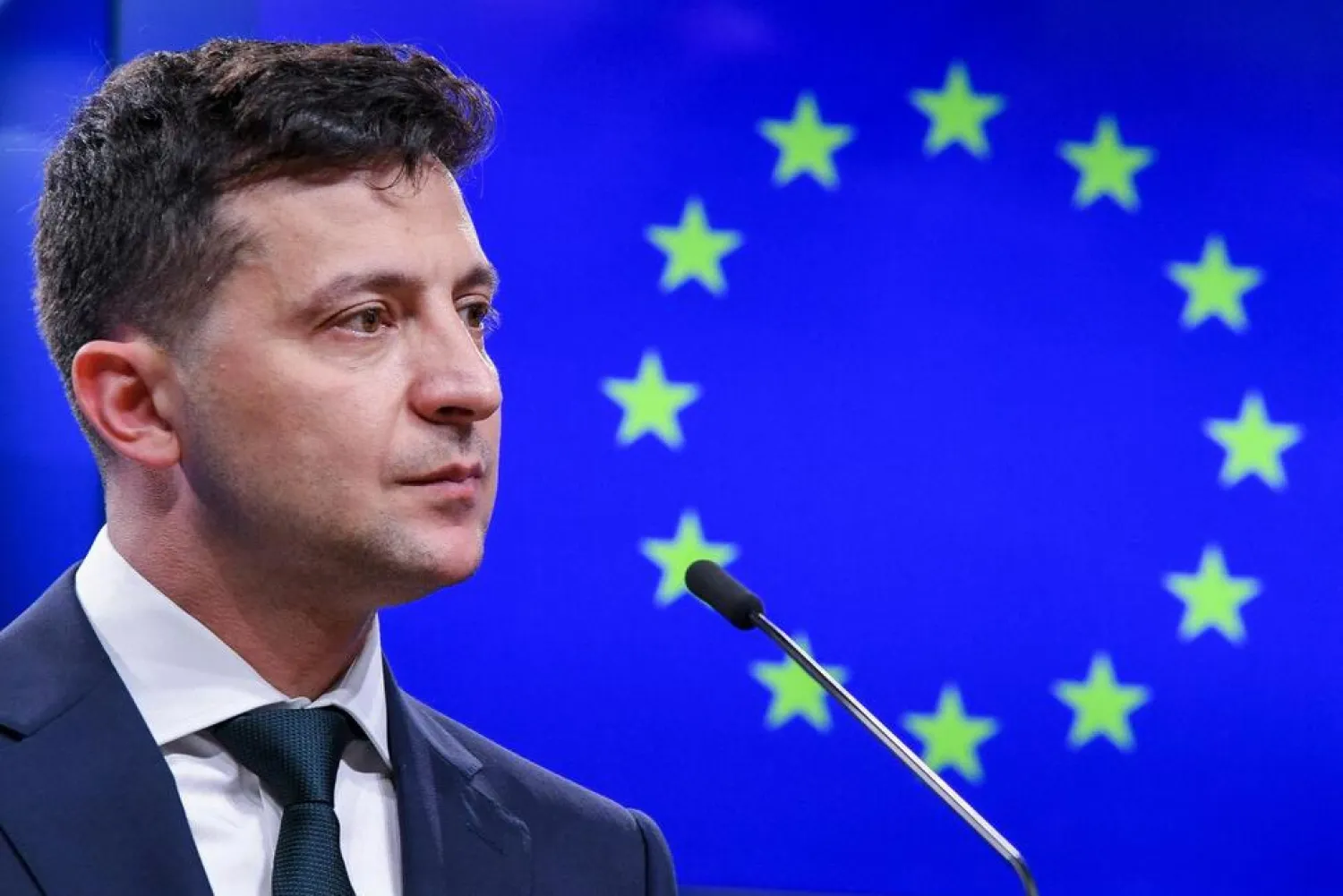Even though Russia has lost influence and friends since the collapse of the Soviet empire in 1989, the nuclear superpower still holds sway over several of its neighbors in Europe and keeps others in an uneasy neutrality.
The Russian invasion of neighboring Ukraine and the humanitarian tragedy it provoked over the past two weeks have raised a Western outcry of heartfelt support and spawned calls for a fundamental rethink of how the geopolitical map of Europe should be redrawn in the future.
To anchor that in the reality of 2022 is far more difficult than may appear at first sight. Nudging Ukraine, Europe's second-biggest country, fully into the Western fold against the will of Moscow poses massive problems.
And European Union leaders will confront them together head on during a two-day summit at Versailles just outside Paris starting Thursday — forced into the assessment by Ukrainian President Volodymyr Zelenskyy when he amazingly signed an official request to become an EU member last week.
“The European Union is going to be much stronger with us. So that’s for sure,” Zelenskyy said in an emotional live transmission to the European Parliament on Tuesday.
Piling on the pressure, he said, "So do prove that you are with us. Do prove that you will not let us go. Do prove that you indeed are Europeans.”
Compounding the EU's problem, Moldova and Georgia, two smaller nations who also fear the expansive reach of Russia, followed tack within days and also asked for membership.
The violence of the Russian invasion also spooked historically neutral countries like Sweden and Finland, which now see a surge in support for joining NATO and in Helsinki's case unshackling itself from a Russian influence so heavy that it became a political moniker — “Finlandization.”
Within days, conventional knowledge of who belongs where on the geopolitical map of the continent has been badly shaken.
Despite the thrill of opportunity, progress could be slow.
Many nations fear an enlargement of the bloc and a reshaping of traditional spheres of influence would put the continent on the brink of a full-fledged war. And there is no better example than Ukraine’s aspirations to join the 27-nation EU that could tilt the balance of blocs in Europe.
“There is no doubt that these brave people who defend our values with their lives belong in the European family,” said European Commission President Ursula von der Leyen, choosing her words carefully and avoiding an outright promise of membership.
Even if support for Ukraine is overwhelming among the EU member states, granting membership is anything but automatic. The leaders of eight eastern member states officially said Ukraine “deserves receiving an immediate EU accession perspective.”
But others range from cautious to skeptical, with Dutch Prime Minister Mark Rutte saying that “every country in Europe is free to ask for it,” and immediately listed the immense bureaucratic hurdles ahead.
“It is extremely sensitive. The member states are not all on the same page," a high-level EU official said on condition of anonymity because he wasn't authorized to speak publicly about political discussions happening behind the scenes.
There could quickly be political fallout in Versailles.
"The discussion about Ukraine’s accession to the EU could also easily become overheated, providing euroskeptics with a perfect opportunity to spread fear among voters,” said Pawel Zerka of the European Council on Foreign Relations think tank.
Several nations indicate it isn't good to give Ukraine immediate hope with any rash decision taken in the heat of battle. Calls for a fast-track move to grant membership clash with institutional and political objections and some common sense.
In the past, membership applications have taken years, sometimes decades. Turkey applied to join in 1987 and is nowhere close to membership. Four others are candidate countries now, but the EU has shown an extreme reluctance to expand further eastward. To allow Ukraine to leapfrog over the others would stir passions in the Western Balkans where several are awaiting a nod.
For the European Commission to just assess whether a nation could be a candidate to start membership talks with often takes a year to 18 months.
And to be admitted, potential newcomers would also need to absorb all EU regulations, from rule of law principles to trade and fertilizer standards — about 80,000 pages of rules. Over the past years, the EU has often pointed out that Ukraine’s anti-corruption measures still lacked teeth.
And to top it off, any candidate needs the unanimous approval of current members, often allowing one nation to decide on the fate of the whole process.
In comparison, a move toward NATO membership, especially for nations like Sweden and Finland, would be easier, since the two already have very close cooperation with the military alliance.
A formal step though would surely raise the wrath of Moscow and be seen as a geopolitical power play.
“It’s obvious that if Finland and Sweden join NATO, which is first of all a military organization, it will entail serious military-political consequences, which would require retaliatory steps by the Russian Federation,” Russian Foreign Ministry spokeswoman Maria Zakharova said.
But, somehow, that Nordic neutrality might already be slipping.
“Sweden and Finland have effectively ended their neutrality by sending military aid to Ukraine (lethal aid in the case of Sweden),” said Ed Arnold of Royal United Services Institute.














